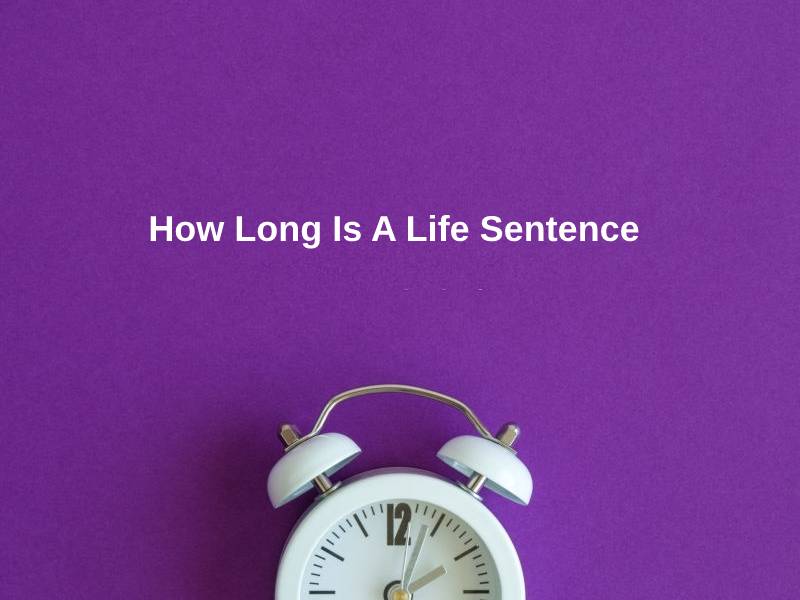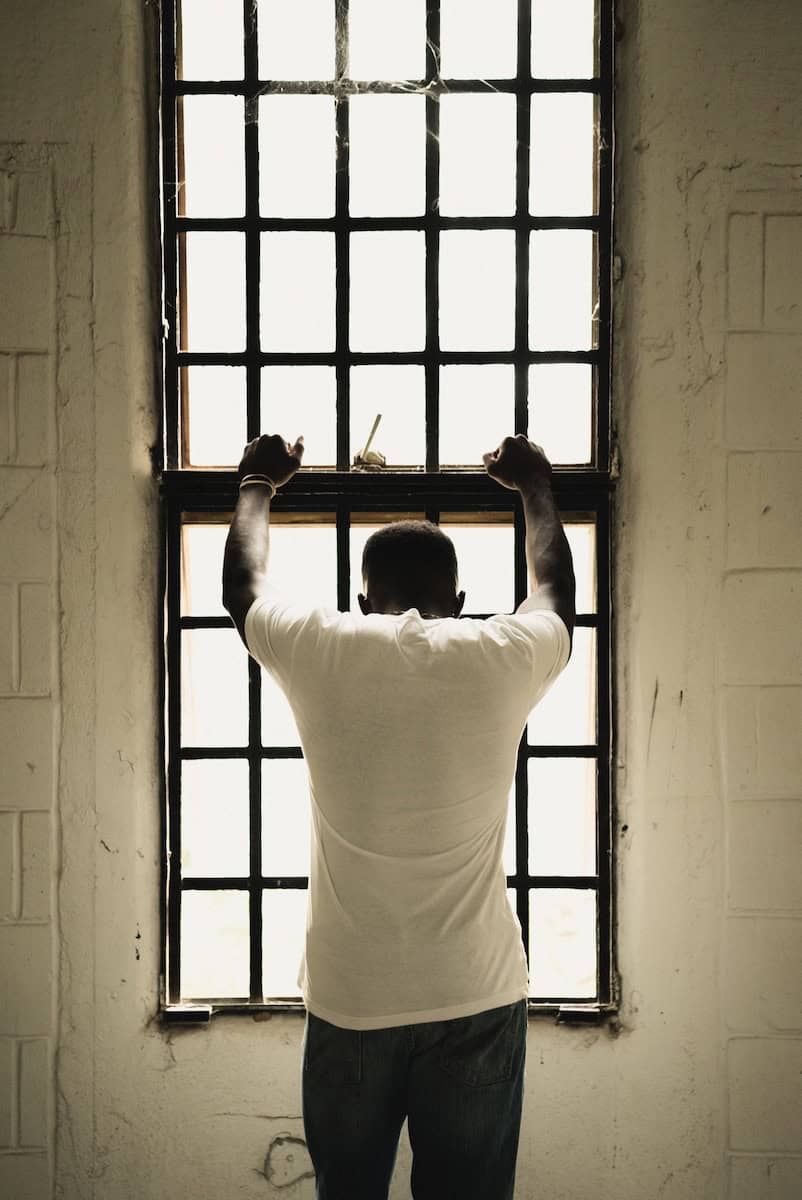Exact Answer: 7-30 years
Imprisonment implies taking away the freedom of a person punished by a court of law. A prisoner has to stay in jail till the end of imprisonment unless released on parole or good behaviour. However, a prisoner given a life sentence may not be so lucky. In many countries, prisoners serving a life sentence are ineligible to be released on parole. Instead, they have to spend the complete sentence in jail.
Depending on the crime committed, the life sentence can vary from 7 to 30 years. The duration also differs in different countries or different states within a country.

How Long Is A Life Sentence?
The two kinds of life sentences vary depending on the crimes committed and the country or state that sentenced the criminal.
The first type of life sentence is called a determinate life sentence. Here reduction of jail time is not possible under any circumstance. Therefore, the prisoner can not leave jail for parole, good behaviour or any other reason by winning an appeal. The second type is known as an indeterminate life sentence. Here, the criminal is given life with a possibility of parole or release through good behaviour.
Most countries have a predetermined period for different crimes committed.
In England and Wales, the minimum life sentence is 15 years. However, this increases depending on the severity of the crime.
A criminal in India can be given anywhere from 14 to 30 years, depending on the crime. The law states that the release of a prisoner can not happen for any reason before the minimum of 14 years.
In the United States, the duration and the number of life sentences vary from state to state. On average, the minimum life sentence given is 15 years. However, some criminals can be given much more depending on the severity of their crime. The longest sentence given in the history of the USA is two life sentences plus 10,000 years for multiple murders.

Similar to the US, the minimum life imprisonment varies from state to state. However, on average, the term of a life sentence is 25 years. A life sentence in Canada varies from 7 to 25 years, with crimes like first and second-degree murders getting guaranteed imprisonment.
In summary,
| Country | Duration |
| England or Wales | minimum 15 years |
| India | 14- 30 years |
| United States | minimum 15 years |
| Australia | 25 years |
| Canada | 7-25 years |
Why Is A Life Sentence So Long?
The duration of the life sentence depends on the type and severity of the crime committed.
Murder is the most common reason for a long life sentence. Other crimes include rape, especially if it involves minors, human trafficking, kidnapping and drug trafficking. Repeat offenders for lesser capital crimes can also receive a life sentence.
Multiple sentences given to criminals for each crime they committed can also affect the duration of the sentence.
These types of sentences can be one of two kinds. Firstly, the life sentences can be concurrent, meaning the prisoners serve all sentences simultaneously. For example, a prisoner can complete 5, 20-year sentences in 20 years and not in 100. Secondly, the sentences for each crime can run consecutively, one after the other instead. This way, time adds up, even leading to 10,000 years. The jury decides the fate of the multiple life sentences served by prisoners.
Possibility of parole is another factor the affects the duration of a life sentence. Here, the prisoner may be given parole after the minimum period specified by the judge during the hearing. The prisoner must satisfy certain conditions before the appeal. An exception is a whole life order, which means the offender must spend their entire life in prison.

The minimum duration before granting parole to a prisoner is different in different countries.
In Australia, the non-parole period depends on the crime. For example, multiple murders have a minimum of 30 years before parole eligibility, while other crimes are only 15 years. In Canada, on the other hand, the prisoner has to serve at least one-third of the sentence before he is eligible for parole.
Conclusion
Serious crimes that result in life imprisonment can vary from country to country and the severity of the crime. Moreover, a criminal can not be granted parole before completing the minimum period of the sentence.
After the minimum period, a prisoner’s sentence may reduce due to good behaviour and rehabilitation. On the other hand, people who show no such improvement serve their entire sentence.